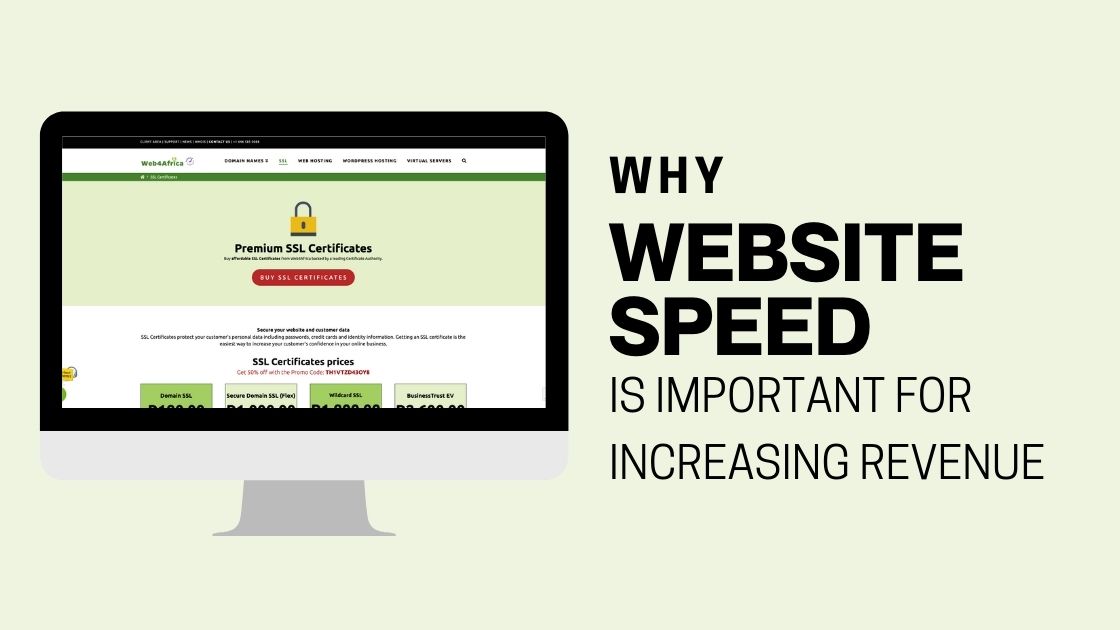The importance of fast loading speed in increasing sales for your online business cannot be overestimated. Just a second’s delay in page loading can contribute to some percentage of page abandonment. If your website takes too long to respond, you may be killing the sales and revenue of your website, as a slow website can frustrate your potential customers.
Surveys have shown your website loading speed directly impacts the amount of traffic you get.
Table of Contents
What is Server Speed?
Server speed is the speed by which your page loads after a user’s request. In addition, it determines how quickly your host’s server responds to demands and queries. The server speed does not mean that your website’s speed lies entirely in the hand of your web host, however.
Your web host is solely responsible for the platform they provide, but your site’s loading speed is in your control. Bear in mind that additional features that make your website more visually appealing can slow down your site, thus affecting customer experience in the long run.
Why is Server Speed Important?
Surveys have shown that faster websites equal happier customers. However, as mentioned earlier, slower speeds can kill your progress by diminishing sales and thus reducing revenue. According to research, losing even a single second can decrease your pageviews by 11%.
Your conversions, sales and SEO tactics will all be rendered futile if your website loading speed is not the best. Note that faster servers also make your website more secure since hackers tend to target the more vulnerable websites with weaker codes and a slower response rate.
Your website’s loading speed may also determine how well your website is ranked on search engines, as search engines give priority to servers with faster speeds during indexing. According to some recent findings, your conversion rate goes up 2% if you increase your web server’s speed by just a single second.
What Speed is Fast Enough?
Ideally, your web pages should take under 3 seconds to load. However, if it takes about 5 seconds, your server speed can still be considered reasonable. However, suppose your web pages take more than 10 seconds to load. In that case, that’s a vital warning sign because it will be deemed too slow, and your potential customers will get frustrated with the slow response rate, which will cause a downward trend in the overall traffic on your server.
Connection Between Server Speed and Revenue
As earlier mentioned, server speed plays a significant role in determining the length of time users spend on your website. In addition, server speed will help prioritise your page by different search engines, make your site seem more up-to-date and tech-savvy and encourage user engagement due to the lack of constant lagging.
The moment a user is directed to your site, your page’s fast and efficient nature will prompt the user to purchase or engage with your business, and of course, this will cause an overall increase in your revenue. As a business owner looking to boost sales, increasing your server speed should be a top priority for you.
How to Check and Improve Your Server Speed
Before making any decisions regarding your server’s speed issues, you must first know your current speed. Do this by looking up “server speed checkers” on your internet browser, and a list of servers will be provided.
Prominent website speed checker examples include:
- www.bitcatcha.com
- tools.pingdom.com
- gtmetrix.com
- pagespeed.web.dev
Enter your website URL, provide optional testing parameters, and then confirm your data. You will receive a report with all relevant information relating to your server speed. The first thing you need to see is your TTFB (Time to First Byte), which will provide all relevant information.
Having established how beneficial faster server speed will prove, let’s see how faster speeds can be achieved. Two primary techniques that you can use to reduce your web page’s load are file compression and image optimisation. You can also minimise CSS, enable and optimise your browser caching, optimise your databases, and reduce redirects, among many other methods.
How to make your website faster
There are several means of increasing your website load speed and improving your revenue. We highlight a few of the major ones, below.
Choose the right web host
Choosing a web hosting company like Web4Africa means that your website can experience good server speed. Web4Africa has invested in technology that ensures the quick load of web resources hosted by the company. These include:
- NGINX: the web server software in addition to improving the response time of the ubiquitous Apache web server software, also helps drastically with caching the most demanded web files.
- SSD: Web4Africa uses Solid State Drives extensively in the web hosting operations. Either as cache drives in combination with transitional hard drives (HDDs), or as standalone drives as is the case with WordPress Hosting.
Install caching plugins
Running your website on a fast server is only half of the solution. You can boost your website loading speed even faster by making use of the right plugins on your Content Management System (CMS) like WordPress. In the case of WordPress, there are dozens of useful plugins. Examples are listed below:
- WP Rocket
- WP Super Cache
- W3 Total Cache
- Sucuri Firewall
- WP Fastest Cache
- LiteSpeed Cache
- WP-Optimize
- Cache Enabler
- Hummingbird
Conclusion
Now that you are aware that slow websites can be disastrous to your business and your server speed is one of the pillars behind your sales and revenue, you can make the right decisions. By applying the tips and tricks discussed above, we hope that your traffic and sales shoot up in the future, giving your business that magnificent boost it deserves.

